What is it?
Land Rover expects around a quarter of all new Land Rover Defender sales to be of this commercial Hard Top variant, which revives a nameplate first used by the brand in 1950. While regular Defender buyers favour the 110, the short-wheelbase 90 is expected to account for the bulk of Hard Top orders, in part because it has few rivals as a compact van with genuine off-road ability.
The changes to turn the Defender from passenger to commercial vehicle (CV) extend far beyond stripping out the rear seats. A reinforced bulkhead separates the cabin from the storage area, which is finished in durable materials with hooks and other loading aids. The 90 version offers 1355 litres of capacity with the 110 able to accommodate 2059 litres. There's also 58 litres of lockable underfloor storage, with another 155 litres of underfloor storage in the front cabin of the 110.
Because such things matter for commercial vehicles, the 90 Hard Top has a load floor width of 1326mm, with an ability to house loads of 1031mm in length; those rise to 1423mm and 1472mm respectively on the 110, which will fit one standard Euro pallet.
While the back is pure utility, the cabin balances practicality with touches of premium comfort. Hardwearing materials abound, and both sizes of vehicle can be optioned with a third, jump seat, but many of the comforts and features of the regular Defender are present, including the later version of Land Rover’s Pivi Pro infotainment. The Defender’s raft of driver assistance systems also easily overcomes the reduction in visibility from the lack of rear windows.
At launch, all Hard Top models will use Land Rover’s latest turbocharged mild-hybrid diesel engines, with the 197bhp D200 the sole choice for the 90. The 110 is offered with a choice of D240, D250 and D300 diesel engines. During our test, we sampled a 90 Hard Top and a 110 D250, which offers 246bhp and 420lb ft from its 3.0-litre engine.


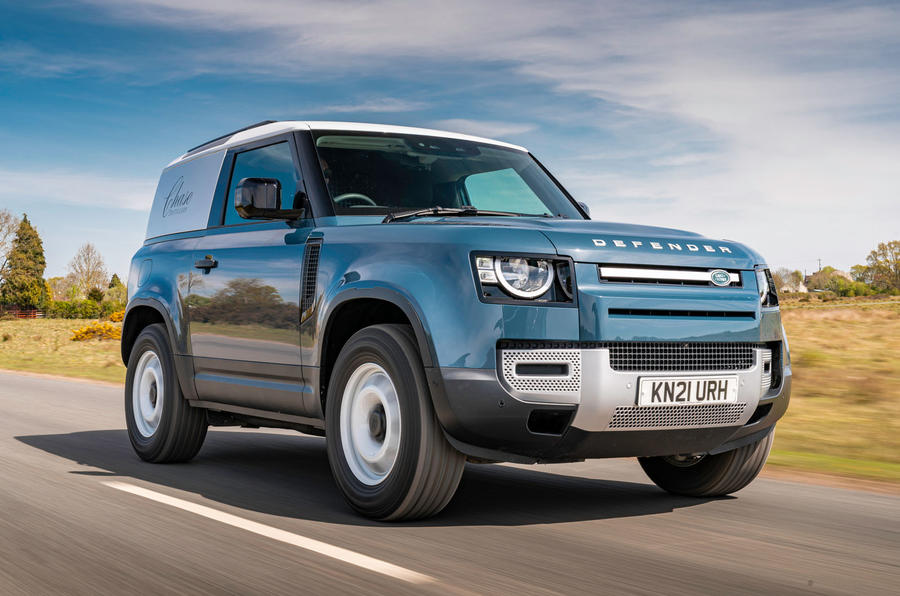
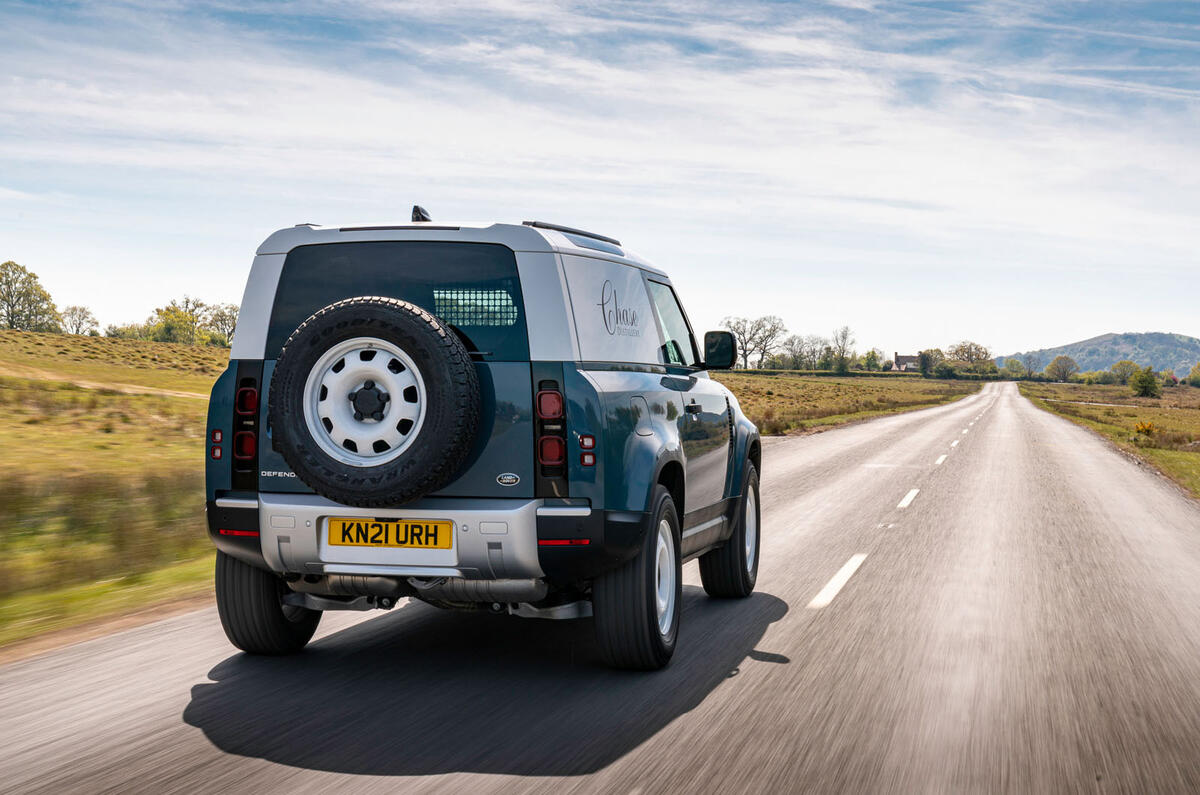



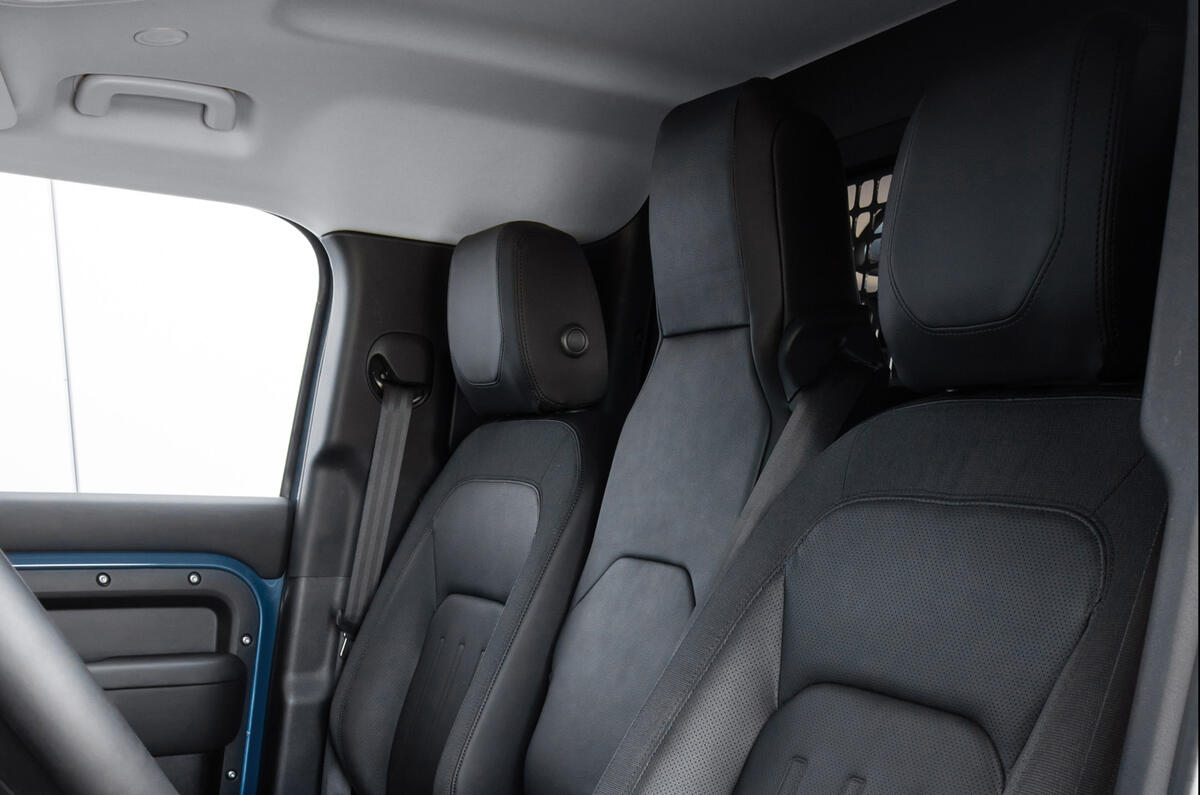



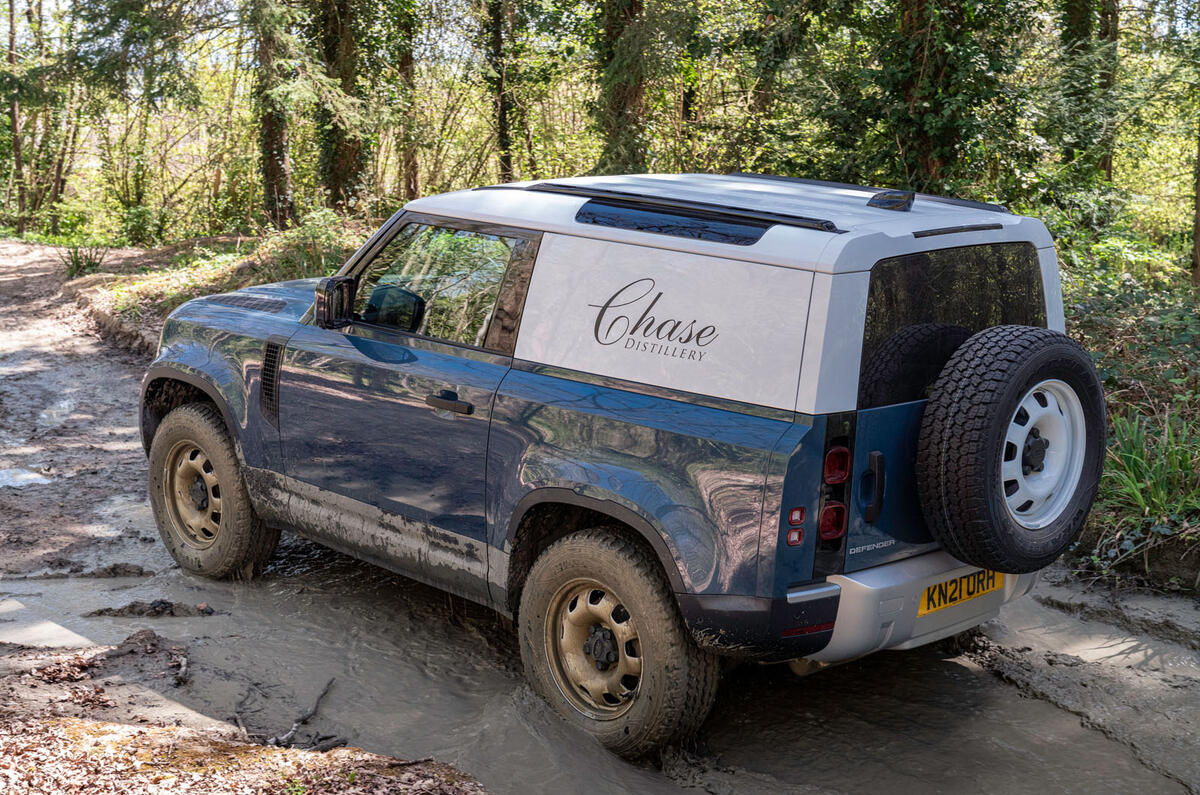
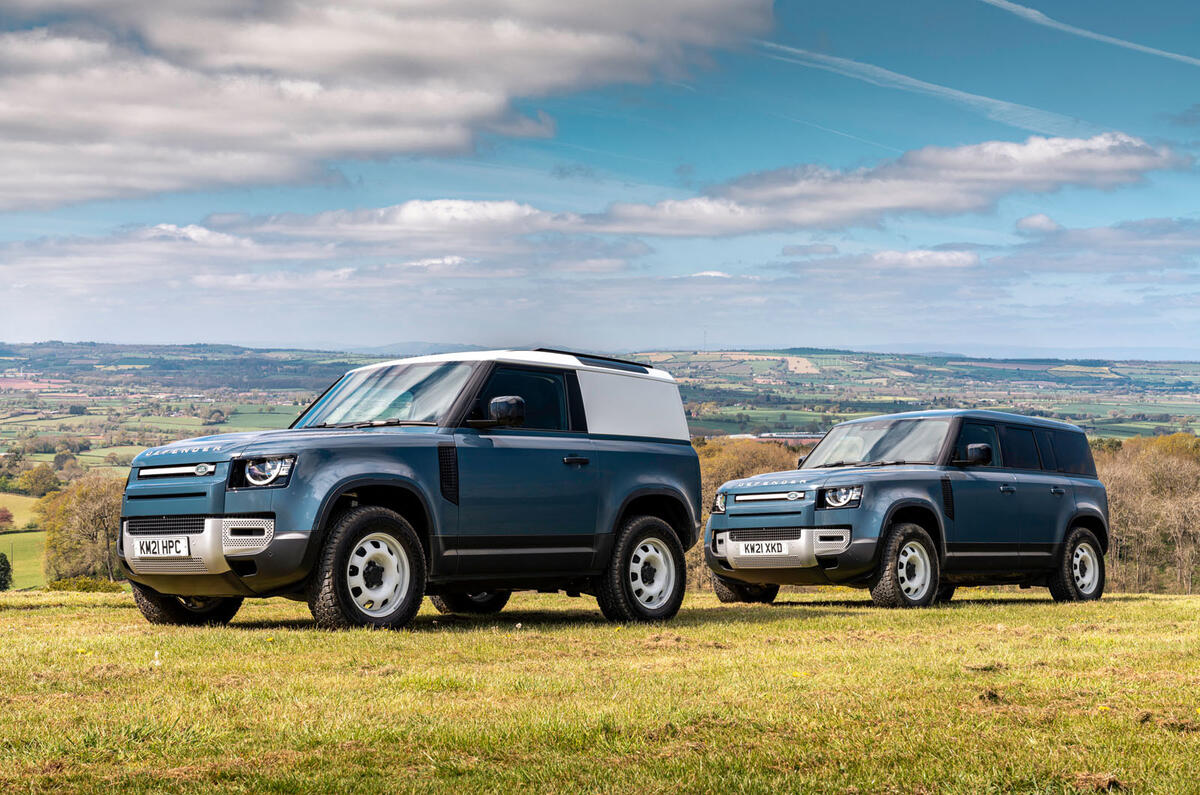


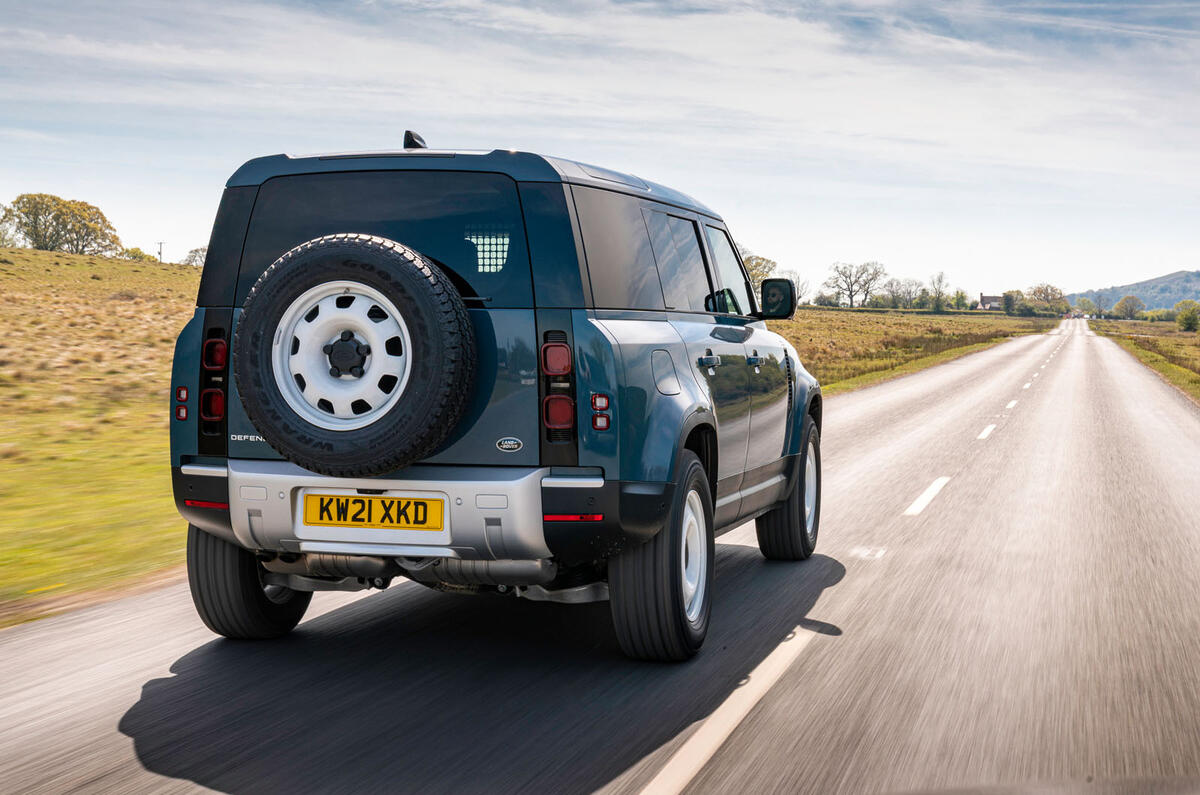




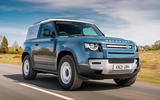


























Join the debate
Add your comment
All these comments and opinions from people who have never even sat in the vehicle let alone driven one.
I have to say the Defender 90 Commercial has been a superb small van for my business so far.
lt's had no faults except a recall for a hose replacement. MPG is 40 on a run, 28 round town. Barely any worse than my Transit Connect.
A hybrid version would have been nice, but there isn't one in Commercial specification.
An added bonus is that, after just under a year of use, it's still worth what l paid for it, with no signs of that changing any time soon.
How many vans can offer that? Not that mine will be for sale, l plan to keep it long term.
As for towing, it's way better than any regular small van. With 600Nm of torque at 1250rpm it will pull my 1,000kg trailer up any hill with barely an increase in RPM.
Should you buy a new diesel SUV? No of course not! JLR themselves say that they will go all-electric by 2025. That's only 4 years away! The value of diesel SUVs is going to plummet. Both those middle-class darlings, diesel SUVs and wood-burning stoves, will be socially unnaceptable by then anyway, so there will be a double-whammy. Meanwhile, all the smart money will be going towards electrified commercial vehicles. For the sake of your wallet, do the research into the pollution implications and ditch diesel.